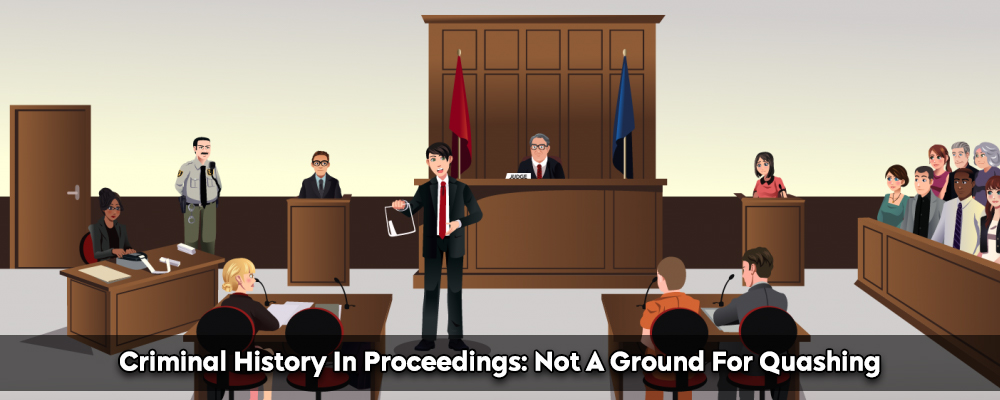The goal of the legal system, which is a pillar of a society that is fair, is to guarantee that each person is treated equally and given the chance to respond to accusations. A key instrument in this effort is the ability to stop the abuse of the legal system through the quashing of criminal proceedings under the virtue of Section 482 of the Criminal Procedure Code (CrPC). Recent debates have nonetheless brought attention to the necessity to find a balance between upholding the rights of the accused and delivering justice to the parties who have been wronged.
Section 482: Criminal Procedure Code
The inherent authority to halt criminal proceedings under Section 482 of the Criminal Procedure Code in order to avoid misuse of the legal system or uphold the interests of justice. The circumstances and the facts of each case are taken into consideration when using this discretionary power, which is used sparingly and judiciously. The Supreme Court has often emphasized that this authority should not be utilized to prevent a valid investigation but rather to stop harassment of a person when there is no evidence to support a case against them.
Need A Legal Advice
The internet is not a lawyer and neither are you. Talk to a real lawyer about your legal issue

Criminal History of Accused: Not a Ground for Quashing of Criminal Proceedings
- The fundamental concept “innocent until proven guilty” may be broken if criminal history is the only factor considered.
- Regardless of the strength of the current case, relying solely on antecedents could result in the targeting of those with prior records using legal processes improperly.
- A thorough study that takes into account the merits, proof, and circumstances produces a fair choice rather than one that is influenced by the past.
- Relying only on precedents may encourage legal harassment by discouraging people from pursuing appropriate remedies.
- By ignoring the relevant merits, the quest for justice is weakened, and the legitimacy of the judicial system is jeopardized.
- Only the past is taken into account when an accused’s right to rehabilitation and another chance after completing a sentence is disregarded.
- Several court rulings emphasize that quashing decisions shouldn’t be only focused on prior criminal convictions in order to foster a fair and rational judicial process.
Role of the Judiciary Supreme Court
- The Supreme Court ruled in Mohammad Wajid v. State of UP case that an accused’s criminal history cannot be the main ground for deciding whether they should quash criminal proceedings or not under the virtue of Section 482 of the Criminal Procedure Code.
- It emphasized the idea of innocence and the value of a careful analysis of the merits of the case, facts, and circumstances. Simply depending upon the precedents would result in abuse of power, harassment, and degrade the system of justice. The ruling of the Supreme Court focused on the need for a fair legal policy that strengthens individual rights without exploiting the system of justice.
Balancing between Justice and Protection
A direct attention on the criminal history may uplift the exploitation of potential abuse of power. It could result in a situation where people who have a criminal history of small and petty offenses are made to undergo unnecessary lengthening of judicial processes, despite the grounds of the specific case. This could lead to a prolonged legal procedure which can be unjust and unfair, violating the legal sanctity of fairness and equity.
Way Forward
In its ruling, the Supreme Court focused on the relevance of carefully weighing all important data and information before deciding whether to quash any criminal proceedings or not. The nature of the accusation, the evidence in hand, the authenticity of the person who is complaining, and any possible negative repercussions on the reputation of the accused must be taken into consideration. This encompassing approach will make sure that the rights of the accused and the one filing the complaint are protected and justice is served fairly to them.
Conclusion
The Justice system is vital for protecting justice, guaranteeing equal treatment, and safeguarding rights of the individuals in a society where the ultimate authority of law is preserved. A key tool for obtaining these goals is the acquittal of criminal proceedings in accordance with Section 482 of the Criminal Procedure Code. The latest judgment by the Supreme Court serves as an important reminder that, an accused’s criminal history cannot be the main ground for deciding whether to quash proceedings or not.
One can talk to lawyer from Lead India for any kind of legal advice. In India, free legal advice online is obtainable at Lead India. Along with receiving free legal advice online, one can also ask questions to the experts online free through Lead India.





 Talk to a Lawyer
Talk to a Lawyer